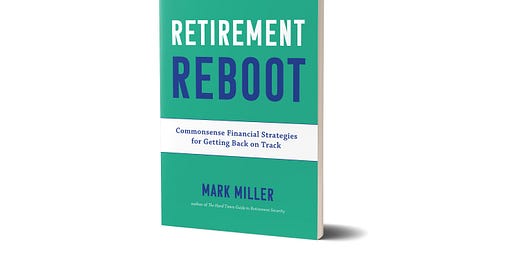Inflation and the markets take a bite out of retirement confidence
Survey finds the largest drop in sentiment since the 2008 global financial crisis
The U.S. economy is in much better shape today than it was during the Great Recession. But persistent inflation and last year's sharp stock market decline have shaken the confidence of American workers and retirees about their retirement prospects in a way not seen since 2008.
That is the key finding of the 2023 Retirement Confidence Survey - the longest-running survey of its kind measuring worker and retiree confidence. Conducted by the Employee Benefit Research Institute (EBRI) and Greenwald Research, the survey is in its 33rd year.
The survey was fielded during January this year, fresh on the heels of a painful drop of 19.4% in the S&P 500 in 2022. Equity markets have recovered since then, and inflation also has moderated this year, although it remains above the level policymakers would like to see.
EBRI queries both working people and retirees each year about a range of retirement-related topics. This year, 64% of workers said they are confident about their ability to live comfortably throughout retirement, down significantly from 73% in 2022. Among current retirees, the comparable figures fell from 77% to 73%. The last time those figures fell that sharply was in 2008, when the U.S. was in the grip of the global financial crisis, according to EBRI.
Meanwhile, 84% of workers and 67% of retirees are worried that rising living costs will make it harder to save money. Nearly nine in 10 workers are concerned inflation will stay high for another year, and eight in 10 workers are concerned about a recession in the next year and further interest rate increases.
Inflation is a constant risk factor in retirement plans - even when it isn’t making headlines. But the impact of inflation on retirees is complex and variable. In my latest Reuters column, I consider the impact of inflation on retirement plans.
Retirement Reboot in the news
Here’s a big “thank you” to social insurance expert Bill Arnone for a glowing and thoughtful review of Retirement Reboot: Commonsense Financial Strategies for Getting Back on Track. Bill is CEO of the National Academy of Social Insurance, one of the country’s premiere organizations for research on Social Security and Medicare. He writes:
The book combines a policy overview with practical suggestions on how to navigate Social Security and Medicare as well as other programs that affect retirement planning.
Mark translates the intricacies of both Social Security and Medicare into understandable factors to consider in achieving greater financial security, especially in these uncertain and stressful times. His suggestions to improve personal retirement planning will be welcomed by those who need unbiased guidance from a reputable, savvy, and trustworthy source, especially the many older workers who are nearing retirement in the U.S. and are anxious about the future of these core social insurance programs.
What I’m reading
Once again, passive index funds beat active funds in 2022 . . . More small businesses are launching 401(k) plans in states that mandate access . . . . Two retirement fund providers push to make 401(k)s more like pensions . . . Judith Herman redefined trauma - then trauma redefined her . . . Gaps in Medicare Advantage data limit transparency on plan performance . . .Private equity bets on hospice care, alarming some critics . . . Experts are optimistic about low COVID rates.



